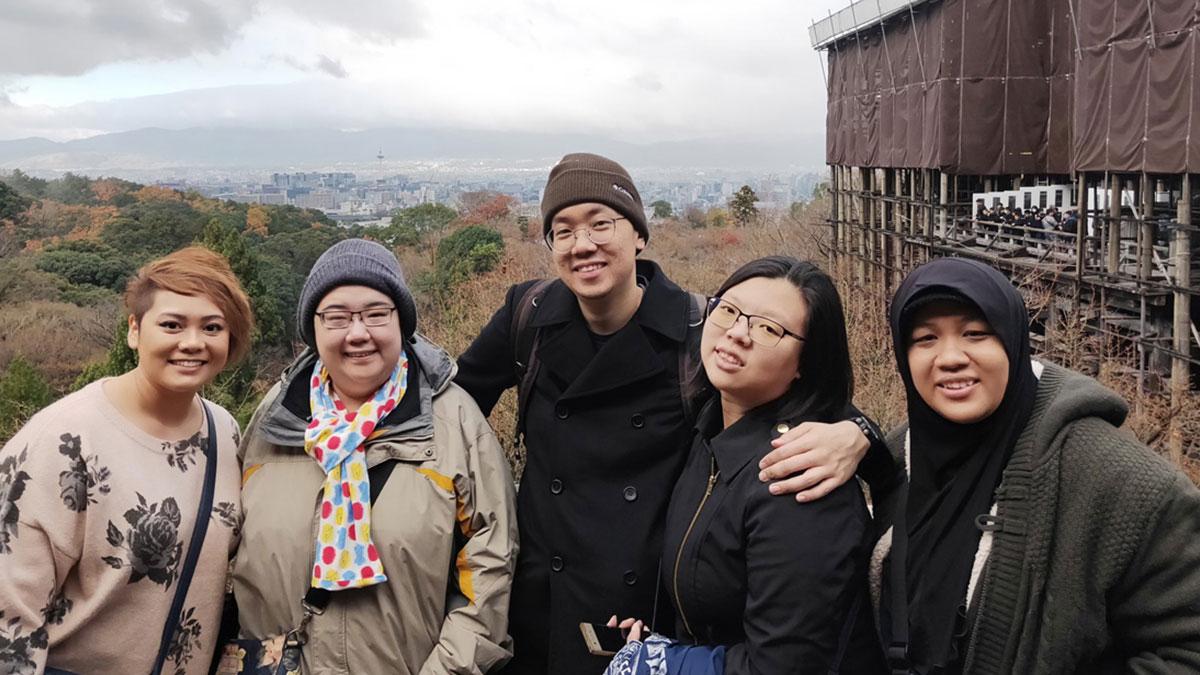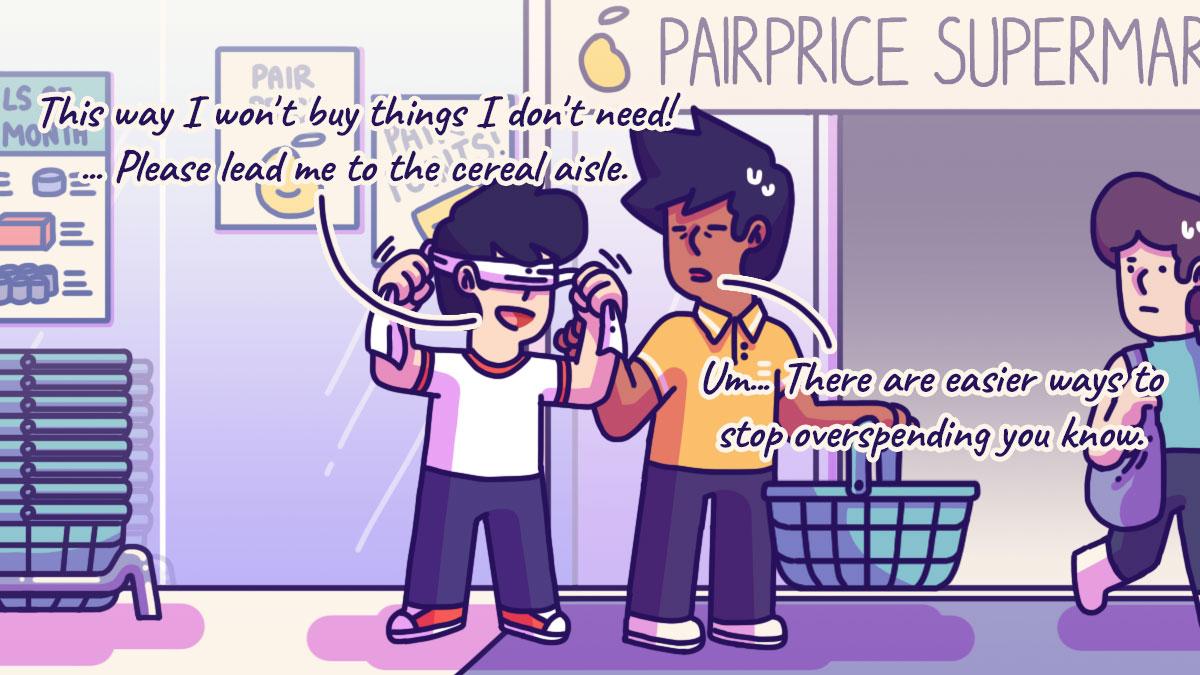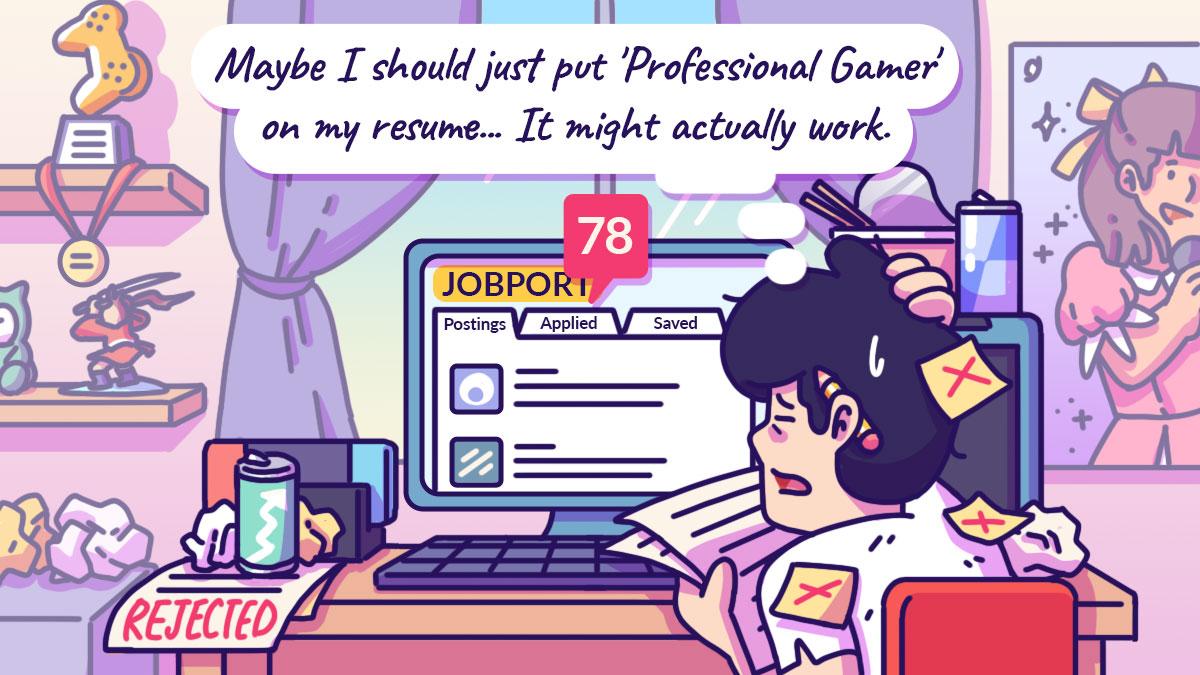Gearing up for a quick break this month? Can’t wait to take that grad trip? A group of friends recently pulled off an elaborate, successful trip to Japan just last year, and I thought to sit down with them for a quick talk about their experience with planning trips and detailed holidays.That, and they created this crazy cool itinerary to refer to on the go.
[caption id="attachment_5282" align="aligncenter" width="768"]
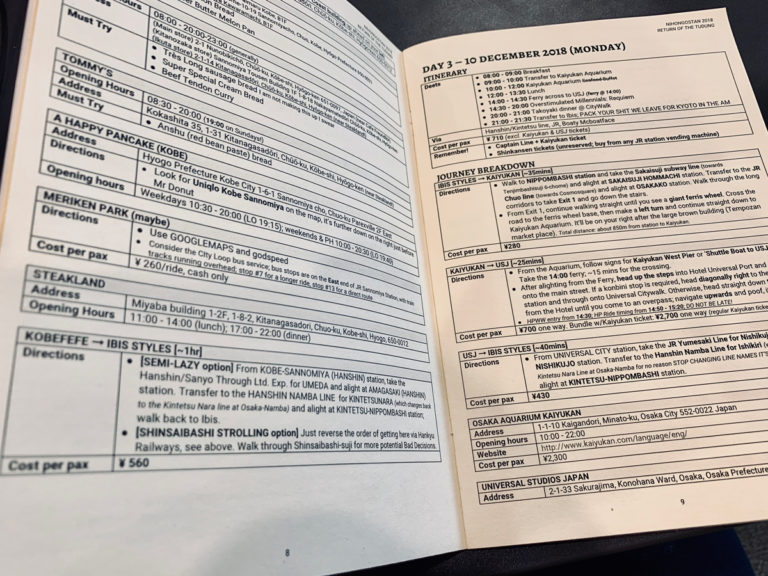
Such detail. Much wow. So planning[/caption]You might think you’re organised, but these guys take it to the next level. Here’s how they get down to planning trips when the travel bug hits.
1. What is Nihongostan, and when was it born?
Sarah: Nihongostan is a pun.
Nihongo means Japanese, while
gostan is slang for going in reverse.
Lyn: There was a plan to bring together a group of remarkable individuals…
[caption id="attachment_5281" align="aligncenter" width="768"]
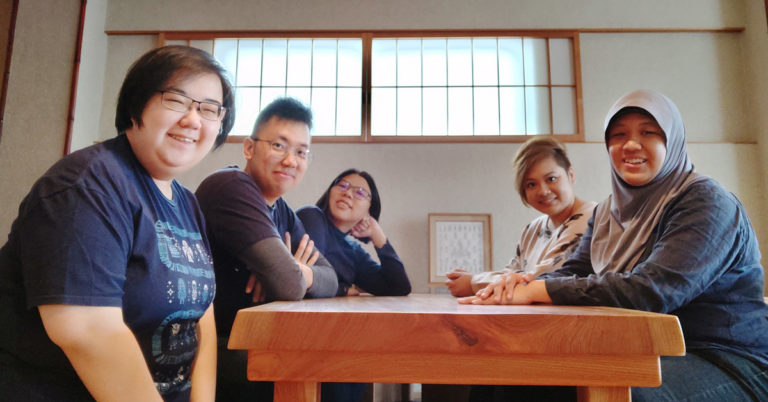
The Avengers! No, wait… (from left to right) Viki, Max, Jo, Lyn, Sarah.[/caption]
Max: The first edition of Nihongostan took place in 2016. We enjoyed it so much that we planned for a return in 2018.
2. Have you had to compromise anything in order to save up and travel when planning trips?
[caption id="attachment_5280" align="aligncenter" width="768"]

Indulgent posing, just because.[/caption]
Max: My dignity.
Lyn: Max, I’m dying.
Max: But it’s true. I had to turn down some social invitations and scrimp on some expenses while trying to visualise what the money I’m saving now will be spent on when I’m in Japan. Delayed gratification is kinda my thing, yo. It’s not easy, but the rewards are worth it.
Sarah: We saved up for two years after the first trip. Time is money. To get cheap prices, it’s better to know when we’re planning to go. That’s how we got good deals with SIA.
Viki: YOU got a good deal. I paid a lot more even though I booked the next day because of stupid pricing algorithms. I started graduate studies just before Nihongostan so money was pretty tight. The two months before the trip were pretty lean because I was paying for tuition and various tickets. I made do by being disciplined and keeping to my daily budget, even if it meant fewer treats.
Jo: It wasn’t so bad for my end because I put aside money every month (while I was still working full-time) for travel only.
3. How did you manage the trip, financially? Are you guys usually on point with your travel budgeting?
Max: Most of the time. When I budget for
oops, oops money (extra, off the cuff expenses) and find that I still have money to spare at the end of the trip, I guess I’m kind of within budget.
I had to turn down some social invitations and scrimp on some expenses while trying to visualise what the money I’m saving now will be spent on when I’m in Japan.
Sarah: Yes, we know what we want to eat in general, the locations, and the money needed for hotel and transport. We’ll set that aside, then top up with more money for fun spending.
Lyn: We do set aside spending money, but it’s more of a guideline. Estimated costs for subway travel (via
HyperDia and Google Maps) are super useful! We discovered that even with Shinkansen tickets, we would have only spent a teeny bit more than we would have with a Rail Pass – and this gave us the flexibility to travel on both subway and JR lines! We also had a wishlist of things to buy that we put into the itinerary.
Viki: We did a lot of research beforehand and kept an eye out for deals. It helped that we planned way, way in advance. I spent a lot less than expected, but I tend to over-budget because I’d rather be safe than sorry.
Jo: At the same time, we all know ourselves – we knew we would likely spend more on food and fandom items, so there’s that research and estimation. It’s better to have a buffer spending amount in case of emergencies.[caption id="attachment_5279" align="aligncenter" width="768"]
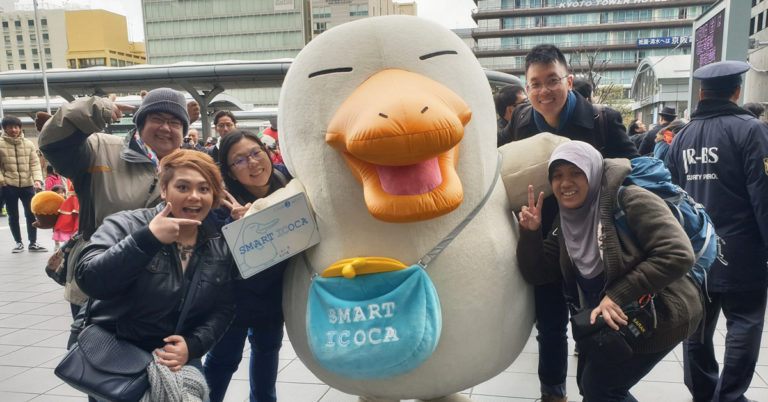
Look at these faces. These are the faces of great planners.[/caption]
4. Do you track expenses very closely during a trip?
Lyn: Yeah, mostly because we need to track our physical cash, and individually often pay for the whole group’s lunch/dinner.
Max: One of us usually steps up to pay for the whole group for ad hoc and group purchases. We’ll regroup in one of our rooms after we return to our hotel to work out how much we need to pay each other. Pro-tip: It’s easier to do it at the end of each day to circumvent late-trip amnesia because receipts do get mixed up, especially if you can’t read Japanese.
Viki: I used an expenses app on my phone. I have terribad memory, and it was easier to track almost immediately after purchase especially when you routinely have fiddly amounts.
5. How do you manage your finances while planning trips? (In other words, how do you remain a financially responsible adult?)
Lyn: Starve.
Viki: Lyn, please.
Sarah: We pay for hotels, tickets and other stuff in advance on a monthly basis, before the actual day. So we’ll know what has been paid for. Besides that, I save up money each month to change money; we also track JP yen to SGD rates, so that’s why we don’t change all at one go.
Max: Apart from cutting down on my daily expenses, I also did do some freelance projects (on top of my day job) to get some extra
moolah, and the money came in before the trip so I had extra padding in my wallet.
Viki: I set up a savings target as soon as we started talking about the trip, with a goal to hit the target a couple weeks before we went. Every month, I put aside a certain amount from my regular spending budget into my trip fund.
6. Do you tend to list big ticket items prior to the trip so you can stick to your budget?
Viki: How would you keep a budget if you don’t list out stuff like that?
Lyn: We first lock down plane tickets and accommodation, as well as any major traveling expenses (e.g. Shinkansen tickets). After that, it’s anyone’s guess.
Max: It’s always good to buy big ticket items way in advance. My
flight tickets are usually almost 40 to 50% cheaper bought eight or more months in advance. Also, one-way flight tickets are much more expensive than return tickets.
Jo: It also gives you a peace of mind to know that the main items are settled so that you don’t have any huge surprises when it comes to spending.
7. When do you usually start planning trips? And how long does planning take?
Lyn: Anywhere between six to eight months. Our planning usually begins with places to eat and see, with pit stops for fandom trash and
can we go here please?
Max: We tend to go through at least three versions of our documents: one as our initial sounding board just to throw everything we could possibly want to do, one for whittling down and giving it a semblance of structure, and the final, to-print version. We’re all super eager planners, so we tend to err on the side of caution.
Flight tickets are usually almost 40 to 50% cheaper bought eight or more months in advance.
Lyn: One thing to note – our itinerary is only done to determine how much food we can conceivably eat in one day. On the actual trip, we’re super flexible (except for things like Shinkansen or dinner reservations).
Jo: Also, each list has hierarchies of importance – Die-die Must See, Would be Great to Experience, Nice to See but Not Necessary if We Have No Time / Energy.
8. Do you think millennials should actively chase these experiential things, no matter the cost?
Max: Contrary to popular belief, we do apply common sense to what we do, including travel. If you ever go into debt just to travel, reconsider your life choices. Don’t become a begpacker. We started planning trips around a year in advance to allow time for each of us to decide if our finances were in a good place to afford them.
Sarah: They don’t need to actively chase experiential things no matter the cost. You can experience stuff locally or think within your means when planning trips. Anywhere is boring if they’re boring themselves – so make sure going to a place really matters to you. For us, the fun was being with our friends (and food). Don’t do things for immediate gratification – plan it properly.[caption id="attachment_5278" align="aligncenter" width="768"]
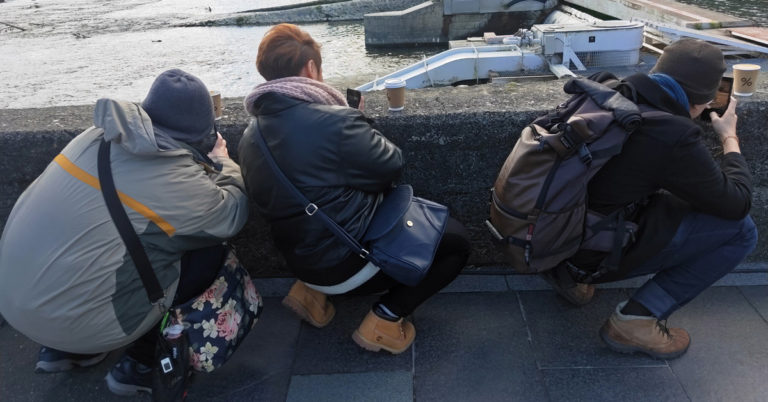
Just millennials being millennials… for Instagram.[/caption]
Jo: Responsibility (as much as people try to avoid it) is important in this case too. The world does not and will not revolve around us and our goals, so if we want something, it’s up to us to take steps to get to it.
Each list has hierarchies of importance – Die-die Must See, Would be Great to Experience, Nice to See but Not Necessary if We Have No Time / Energy.
Viki: What works for us may not work for everyone when planning trips. But I’m a little torn on this. On one hand, most of our peers are young, relatively free of responsibility and have the financial and technological resources to experience the world. On the other hand, I’m not sure that everyone has the maturity and foresight to be prudent and plan ahead. Near-term gratification is extremely tempting sometimes.[caption id="attachment_5277" align="aligncenter" width="768"]

The itinerary’s amazing cover art. Kudos, and credits to Max.[/caption]
9. Concluding thoughts on planning trips, anyone?
Sarah: We accounted for wifi routers and data plans as well. Max had to get his own router in Malaysia. I got my own too in case of work. We also don’t put all our money in one spot – for safety. We also had travel insurance – not all the same, but each of us had one. And we registered with MFA for safety.
Max: Be smart about your time when planning trips. If you know you have a tendency to linger, allocate sufficient time for it to avoid extra unnecessary expenses like buying a new ticket for a missed bus or train etc. Remember, kids: if you fail to plan, you’re planning to fail!
Jo: I understand that planning is not for everyone, but the needle cannot be sharp on both ends – so have to put in the effort that you can have a trip that you will be happy with.
Viki: Also I think you need to know your physical limits. We went in winter so we calibrated our activities accordingly, for example with less strenuous activities in the outdoors. I was upfront that I dislike the cold, and tend to wear out much faster because of the cold and short daylight hours, and fortunately my friends were understanding and accommodating about that.
Ready to hit the road, start planning trips, and see the world? Take stock of Nihongostan’s lessons and tips – and ensure you’re financially prepared to make that holiday happen. Planning trips shouldn’t be too much of a hassle – and you should never go in blind.
Share your tips with us on Facebook, too!
 Such detail. Much wow. So planning[/caption]You might think you’re organised, but these guys take it to the next level. Here’s how they get down to planning trips when the travel bug hits.
Such detail. Much wow. So planning[/caption]You might think you’re organised, but these guys take it to the next level. Here’s how they get down to planning trips when the travel bug hits. The Avengers! No, wait… (from left to right) Viki, Max, Jo, Lyn, Sarah.[/caption]
Max: The first edition of Nihongostan took place in 2016. We enjoyed it so much that we planned for a return in 2018.
The Avengers! No, wait… (from left to right) Viki, Max, Jo, Lyn, Sarah.[/caption]
Max: The first edition of Nihongostan took place in 2016. We enjoyed it so much that we planned for a return in 2018. Indulgent posing, just because.[/caption]
Max: My dignity.
Lyn: Max, I’m dying.
Max: But it’s true. I had to turn down some social invitations and scrimp on some expenses while trying to visualise what the money I’m saving now will be spent on when I’m in Japan. Delayed gratification is kinda my thing, yo. It’s not easy, but the rewards are worth it.
Sarah: We saved up for two years after the first trip. Time is money. To get cheap prices, it’s better to know when we’re planning to go. That’s how we got good deals with SIA.
Viki: YOU got a good deal. I paid a lot more even though I booked the next day because of stupid pricing algorithms. I started graduate studies just before Nihongostan so money was pretty tight. The two months before the trip were pretty lean because I was paying for tuition and various tickets. I made do by being disciplined and keeping to my daily budget, even if it meant fewer treats.
Jo: It wasn’t so bad for my end because I put aside money every month (while I was still working full-time) for travel only.
Indulgent posing, just because.[/caption]
Max: My dignity.
Lyn: Max, I’m dying.
Max: But it’s true. I had to turn down some social invitations and scrimp on some expenses while trying to visualise what the money I’m saving now will be spent on when I’m in Japan. Delayed gratification is kinda my thing, yo. It’s not easy, but the rewards are worth it.
Sarah: We saved up for two years after the first trip. Time is money. To get cheap prices, it’s better to know when we’re planning to go. That’s how we got good deals with SIA.
Viki: YOU got a good deal. I paid a lot more even though I booked the next day because of stupid pricing algorithms. I started graduate studies just before Nihongostan so money was pretty tight. The two months before the trip were pretty lean because I was paying for tuition and various tickets. I made do by being disciplined and keeping to my daily budget, even if it meant fewer treats.
Jo: It wasn’t so bad for my end because I put aside money every month (while I was still working full-time) for travel only.
 Look at these faces. These are the faces of great planners.[/caption]
Look at these faces. These are the faces of great planners.[/caption] Just millennials being millennials… for Instagram.[/caption]Jo: Responsibility (as much as people try to avoid it) is important in this case too. The world does not and will not revolve around us and our goals, so if we want something, it’s up to us to take steps to get to it.
Just millennials being millennials… for Instagram.[/caption]Jo: Responsibility (as much as people try to avoid it) is important in this case too. The world does not and will not revolve around us and our goals, so if we want something, it’s up to us to take steps to get to it.
 The itinerary’s amazing cover art. Kudos, and credits to Max.[/caption]
The itinerary’s amazing cover art. Kudos, and credits to Max.[/caption]
